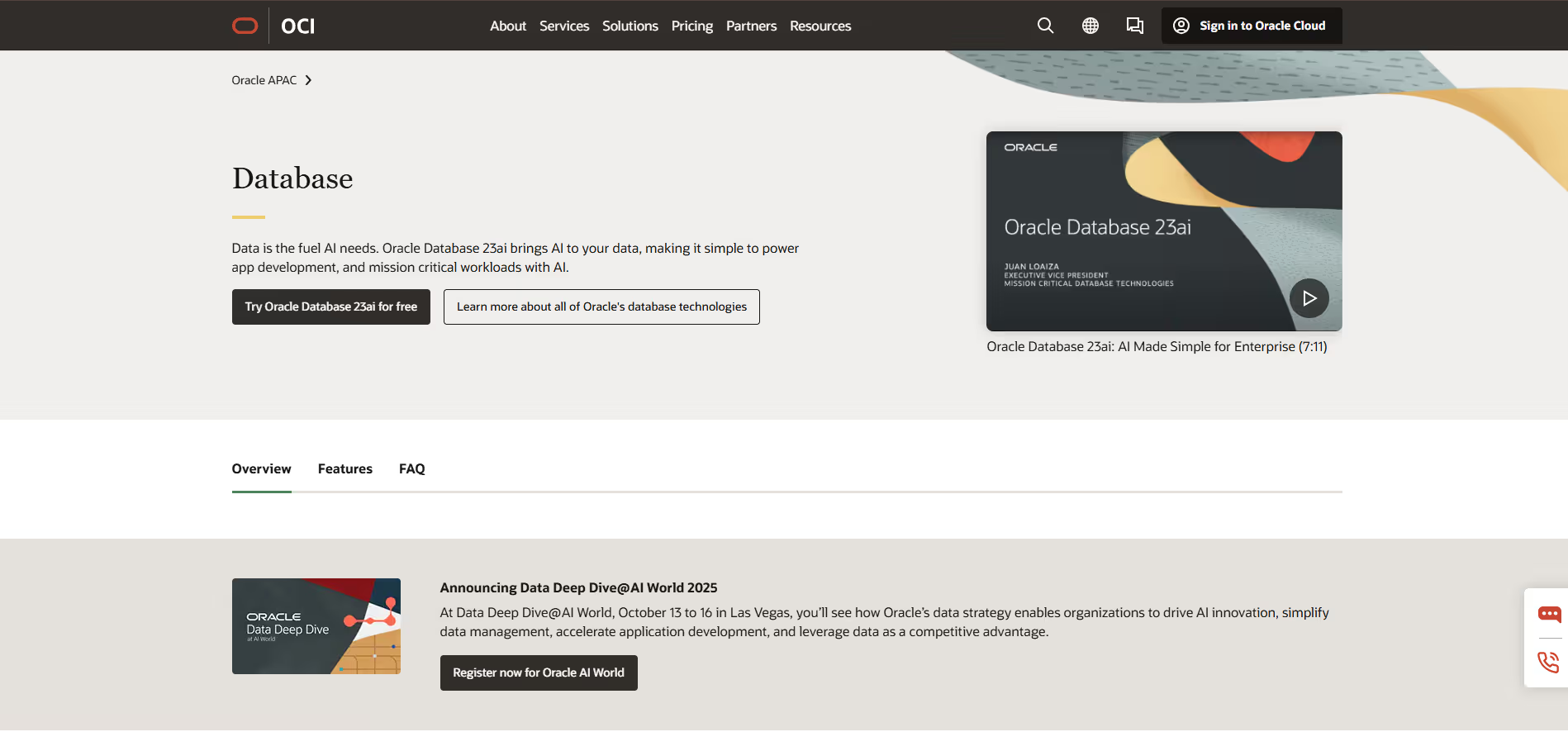Oracle Database
Description
Key Applications
- Enterprise Resource Planning (ERP): Oracle Database is widely used to support ERP systems, enabling organizations to manage and integrate key business processes.
- Data Warehousing: It serves as a robust platform for consolidating large volumes of data from various sources, facilitating complex queries and analytics.
- Online Transaction Processing (OLTP): Oracle Database efficiently handles high-volume transaction processing, ensuring data integrity and reliability.
- Customer Relationship Management (CRM): Supports CRM applications by managing customer data and interactions, enhancing customer service and satisfaction.
- Business Intelligence (BI): Facilitates BI applications by providing a reliable and scalable database infrastructure for data analysis and reporting.
Who It’s For
Pros & Cons
How It Compares
- Versus Microsoft SQL Server: While both are relational database management systems, Oracle Database offers greater scalability and advanced features for large-scale enterprise applications.
- Versus MySQL: Oracle Database provides more robust security features and support for complex transactions, making it suitable for enterprise environments.
- Versus PostgreSQL: Oracle Database offers comprehensive support for enterprise applications, including advanced analytics and high availability features.
Bullet Point Features
- Multimodel Database: Supports relational, JSON, XML, and spatial data models.
- High Availability: Features like Real Application Clusters (RAC) and Data Guard ensure continuous database availability.
- Advanced Security: Includes encryption, auditing, and fine-grained access control to protect sensitive data.
- Scalability: Designed to handle large-scale data workloads with high performance.
- Cloud Integration: Offers deployment options on-premises, in the cloud, or in hybrid environments.
- Comprehensive Tooling: Provides a suite of tools for database management, development, and analytics.
- Support for AI and ML: Integrates with machine learning frameworks to enable advanced data analytics.
- Compliance and Data Sovereignty: Meets regulatory requirements and supports data residency needs.
Frequently Asked Questions
Find quick answers about this tool’s features, usage ,Compares, and support to get started with confidence.

Oracle Database is a high-performance, enterprise-grade relational database management system (RDBMS) used to store, manage, and secure structured data. It’s widely used in industries for applications ranging from business operations to analytics and cloud services. Q: How does Oracle Database help businesses manage data?

Oracle Database provides data storage, retrieval, and management capabilities, along with advanced features like transaction management, concurrency control, backup and recovery, and security mechanisms. This ensures reliable, scalable, and secure access to critical business data.

Oracle Database offers high availability, scalability, multi-model data support, advanced analytics, in-memory processing, security and compliance features, backup and recovery, and cloud integration. These features allow organizations to handle large datasets efficiently and securely.

Oracle Database is more suitable for IT professionals, database administrators, and developers. While beginners can learn it, full utilization requires technical knowledge of SQL, database design, and administrative tasks.

Oracle Database is ideal for large enterprises, IT teams, software developers, and organizations with mission-critical applications. Users can expect robust data management, high performance, security and compliance, support for complex applications, and reliable business continuity, making it a trusted solution for enterprise-level data needs.





.avif)




